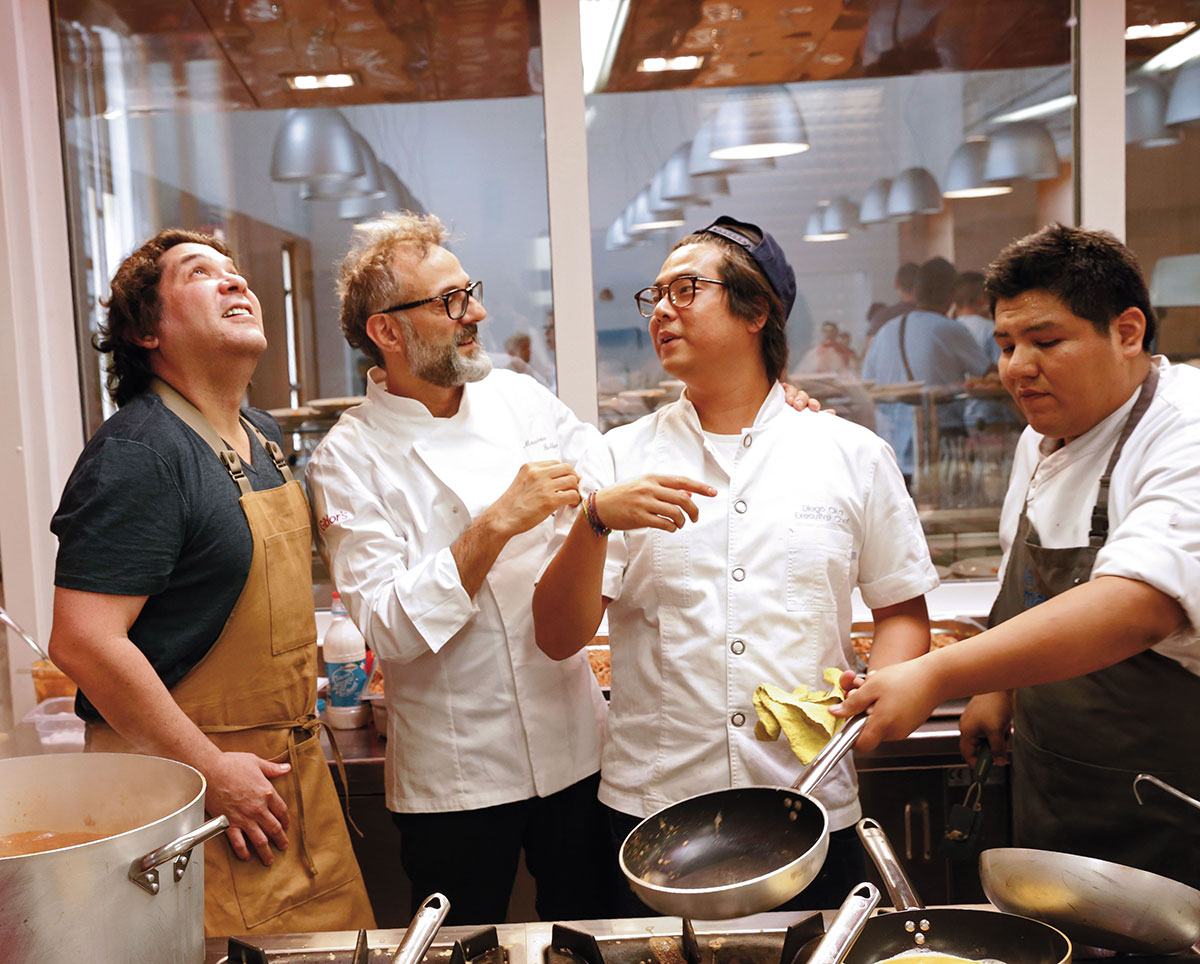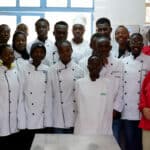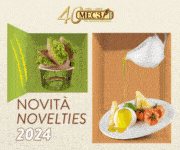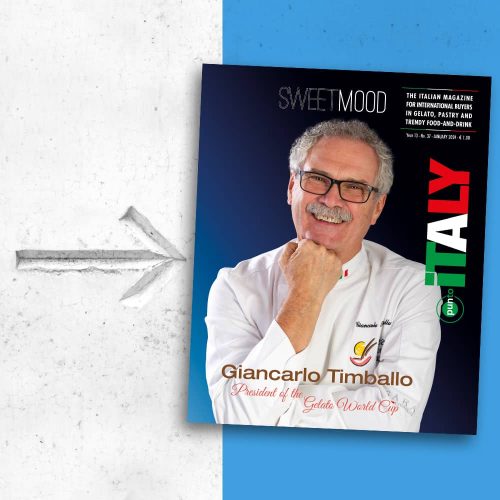Even food has a soul

Last year, chef Massimo Bottura became the focus of attention during Expo.
His idea was easy but very effective and it immediately became a tangible reality. It originated from a question we all asked ourselves: why waste mountains of food produced every day during the six long months of the Expo?
The Refettorio Ambrosiano was established in this manner, to render – as the Italian chef likes to put it – “the invisible visible”.
To create the refectory, Massimo Bottura (together with Davide Rampello and Caritas Ambrosiana) transformed an abandoned theatre on the outskirts of Milano into a dining hall for poor people.
To cook the excess food coming from the pavilions, he invited 60 chefs from all over the world. Chefs were assisted by 100 volunteers who washed dishes, cleaned floors, and gave more than 10,000 healthy and seasonal meals to the guests, recovering in this manner more than 15 tons of food that would have gone to waste otherwise.
Still today the Refettorio Ambrosiano continues to serve meals to the homeless five days a week.
The Food for Soul organization started here.
Founded by Bottura, it is much more than a charity project: it is a true cultural mission with the objective of building a sense of dignity around the table.
The values of Food for Soul revolve around community solidarity, recovering food, recovering spaces and people, on a background interwoven with art and beauty. The intent is to increase social awareness about topics like wasting food and hunger, that, as the chef says, are two sides of the same coin.
All projects promoted by the organization are the fruit of experts’ know-how in various fields. They make their knowledge and expertise available to this community. They work so that the Refettorio Ambrosiano will not be an isolated case, but rather so that it can be a model for other structures around the world, even a support for existing dining halls that want to embrace this mission.
RECOVERED TO FEED
The dining hall model outlined by Food for Soul is based on a series of mandatory principles. First of all, recycling. All meals are cooked with ingredients derived from excess food given by supermarkets and small and medium producers.
To prepare this food, the organization calls renowned chefs who prepare nutritious, healthy, seasonal dishes. In this way, all products destined otherwise to be thrown away are reintroduced into the food chain.
Apart from food, the dining halls nourish their guests with art, design, and beauty: they offer spaces that inspire guests and the whole community. To do this, the organization seeks funds to renovate abandoned spaces in the suburbs. Once they find a building, architects, artists, and designers are called, and they offer their contribution to prepare the space.
Then there are the volunteers, irreplaceable gears of this extraordinary food engine. Their contribution is very important because they take the meals directly to the tables, and by doing so they create an important human contact with the guests. Giving a plate is a very important gesture. Within the project, it is a way of giving dignity back to those who may have forgotten about it.
Last, but not least, the dining halls seek to be cultural centres for the communities involved, real meeting points in which to create supportive bonds that cut through all social classes.
Among the current Food for Soul projects there is a collaboration with Mensa dell’Antoniano in Bologna to implement the service during evenings.
There is also a collaboration in the making with Ugo Alciati, one of the chefs who was a guest at Refettorio Ambrosiano. After his experience in Milan, he decided to open one in Turin, pairing up an educational program with a regular dining hall service.
Drawing inspiration from what was achieved thanks to Expo, the organization aims to attract the public’s interest on the topics of hunger and food waste by using the impact of another global event: the 2016 Olympics at Rio de Janeiro. Together with Gastromotiva, a non-profit organization that has been active in the Brazilian territory for more than 10 years, Food for Soul wants to build Refettorio Rio, a community refectory in which to cook the excess food coming from the Olympic Village.
For this project, the municipality donated a space in the Lapa district, and, once the necessary funds are found, it will be renovated to become a refectory able to gather the local community around a meal.
In the future, the building will be used to organize some cooking courses for the youth of the favelas, so that food training becomes an actively useful tool to fight poverty.
Recent Blog Posts
 Medac and AIFA: Hip hip hooray for Charles!
Medac and AIFA: Hip hip hooray for Charles! Sigep 2024 - Carpigiani’s special events with a look at the “green” future of Gelato and pastry
Sigep 2024 - Carpigiani’s special events with a look at the “green” future of Gelato and pastry Maurizio Manzi, as Ambassador for AIG, at the Melbourne Italian Festa
Maurizio Manzi, as Ambassador for AIG, at the Melbourne Italian Festa Medac awarded with the EcoVadis gold medal
Medac awarded with the EcoVadis gold medal MIG Longarone and SIRHA Budapest: a new dynamic space for italian gelato
MIG Longarone and SIRHA Budapest: a new dynamic space for italian gelato Medac supports Alice Italian Food Academy
Medac supports Alice Italian Food Academy The Gelatissimo 2024 online ticket office is officially open.
The Gelatissimo 2024 online ticket office is officially open. Casa Optima Group looks for two exclusive agents
Casa Optima Group looks for two exclusive agents Gelatissimo 2024: here the first information
Gelatissimo 2024: here the first information Ci Gusta opens a new store into the “Il Mercato Eat&Meet” in Reggio Emilia
Ci Gusta opens a new store into the “Il Mercato Eat&Meet” in Reggio Emilia




















